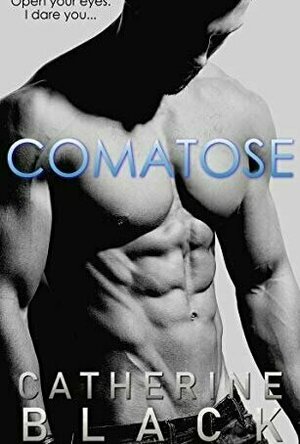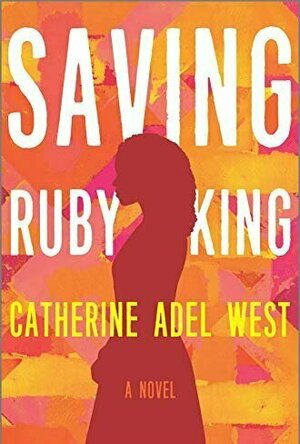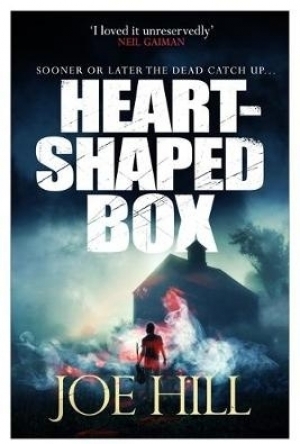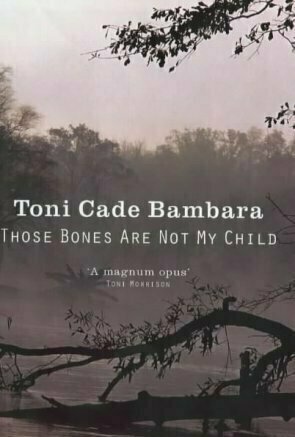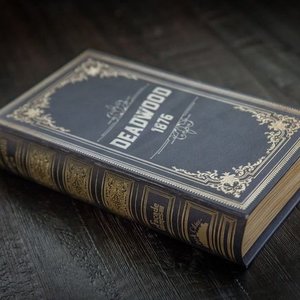
Deadwood 1876
Tabletop Game
There’s gold in the Black Hills of South Dakota, and you’ve come to find (or steal) your share....
Boardgames PartyGames WesternGames 2018Games
Lyndsey Gollogly (2893 KP) rated Comatose (Vixen Bluff #1) in Books
Jul 15, 2020
Kindle
Comatose (Vixen Bluff book 1)
By Catherine Black
Shaye Robinson never questions her role as the tame, submissive sweetheart of Vixen Bluff's illustrious physician, Dr. Robert Baxter. At least, not until she finds his hands wrapped around her neck at the office Christmas party. Blinded by betrayal and more than ready to bid adieu to their loveless engagement, Shaye makes a devastating mistake that leaves her scarred and broken, and at the mercy of the one man she was trying to escape.
Nurse Alexander Mayes avoids temptation of any kind. Always. No exceptions. Living a mediocre, no-frills life is all that's kept him and his little brother fed, clothed, and off the streets since the untimely death of their parents. So when the blonde in room 301 emerges from a coma and immediately charms her way into Alex's heart, he has no other choice than to keep her at arm's length. Her smile may be as rare as her miraculous circumstances, and her eyes may hint at an uncontrollable fire just waiting to lay waste to those who have wronged her, but crossing that particular line would be career suicide.
As Shaye and Alex navigate the treacherous waters of her recovery, they discover everyone in Vixen Bluff has already deemed them 'meant to be', despite the clear conflict of interest. But just when Shaye thinks a happily-ever-after could be in the cards after all, a threat from her past makes his presence known, jeopardizing everything she's fought so hard to rebuild.
I’ve never read anything by this author and this was recommended. I’m so glad I picked it up it was just brilliant! I love the writing style and the story! What’s not to love? Romance isn’t usually a go to genre for me but I really loved this book.
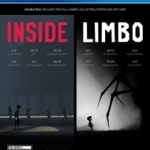
Inside Limbo Double Pack
Video Game
Limbo is a puzzle-platform video game developed by independent studio Playdead. The game was...
Inside Limbo
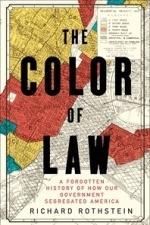
The Color of Law
Book
In this groundbreaking history of the modern American metropolis, Richard Rothstein, a leading...
History Politics
Kristy H (1252 KP) rated Saving Ruby King in Books
Jun 18, 2020
"I'm stitched together by the lies I tell myself and the lies people want to believe about me." ~Alice
I found this excellent and timely book to be incredibly well-written, with a power and tenderness to it that goes far behind your typical debut novel (I had to double check that this was actually West's first novel, I was so impressed).
West tells her story from a variety of points of view--Ruby; her late mother, Alice; her father, Lebanon; her best friend, Layla; Layla's father, a pastor; and more. We even hear from a central figure in all of these characters' lives--their church, via its omnipresent voice. The plot spans generations, with West giving a nuanced look at each of her complex characters. She does an amazing job of showing the power of family, for both good and bad. How choices can affect generations: one person's bad decisions can pass poison on, with children reliving dysfunction and sins.
"How can there be a me without her?" ~Ruby
No one is simply good or bad here, though Lebanon is not an easy-to-like man. Abused and neglected by his own parent, Sara, we see how Sara's neglect has turned Lebanon hard. But West is such a good writer that Lebanon is not a one-dimensional bad guy, as much as you want to hate him. I was incredibly impressed at how she could create sympathy for so many of her players, even when they did despicable things.
"Without Sara, who do I blame for...being me? Are children supposed to forgive their parents for the horrible things they've done?" ~Lebanon
This novel does an impressive job at delving into racism, domestic abuse, and sexual assault and trauma. The city of Chicago appears as its own character, springing to life via West's lovely prose. She expertly shows the difficulties black people face on the south side (and in general). I read this book during George Floyd's murder and found myself highlighting passages about police brutality that just hit me right in the gut. It's very powerful.
West's book features a variety of characters--they can be hard to keep track of at first, and I was glad to have the family tree in the beginning of the book. A few times the plot felt repetitious and the middle dragged a bit, but it picked up in the second half. There's a surprising amount of twists and turns. Overall, this is a realistic look at racism and domestic violence, but also friendship. It's quite well-written and layered with a twinge of hope throughout. I can't wait to see what West writes next. 4+ stars.
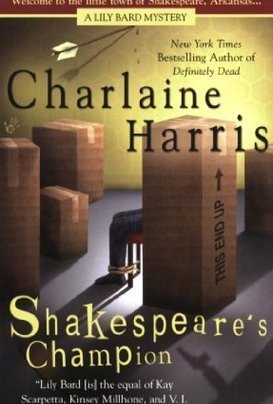
Shakespeare's Champion (Lily Bard, #2)
Book
There's something rotten in Shakespeare... — Lily Bard was running from shattering memories when...
Hadley (567 KP) rated Heart-Shaped Box in Books
Jun 18, 2019
'Heart-Shaped Box' does a successful job of not only painting a picture of ghosts, but also of the spirits that reside in animals (like a witch's familiar), but the likable characters in this book are few and far between. Coyne treats women as objects(he literally only calls them by the State name they are from,such as Florida), and also ended his own marriage by refusing to throw away a snuff film he had obtained from a police. When the story begins, Coyne is shacked up with a young woman (nearly 30 years younger) he calls Georgia; she is described as a stereo-typical goth: black hair, black nail polish, pale white skin. This description of the women Coyne has been with seem to be about the same, but maybe a different hair color, but any other woman that is ever mentioned in the book is either very old or very overweight.
Coyne, a collector of all things dark, buys a dead man's suit that is supposedly haunted by a woman's deceased stepfather. Quite quickly things begin to happen after the suit arrives, including a decaying smell, first noticed by Coyne's 'girlfriend,' Georgia: " I know. I was wondering if there was something in one of the pockets. Something going bad. Old food." She makes Coyne take a look at the suit to see if there is something dead inside of it, but he never finds the source of the smell. Instead, he finds a picture of a young girl in one of the pockets, a girl that is very familiar to Coyne, a girl he once called 'Florida.'
Coyne doesn't seem to take any of the signs seriously that he may be haunted by a ghost that wants to harm him and anyone who comes in contact with him. Until Coyne finds himself sitting inside his restored vintage Mustang in a closed-off barn: " He snorted softly to himself. It wasn't selling souls that got you into trouble, it was buying them. Next time he would have to make sure there was a return policy. He laughed, opened his eyes a little. The dead man, Craddock, sat in the passenger seat next to him. He smiled at Jude, to show stained teeth and a black tongue. He smelled of death, also of car exhaust. His eyes were hidden behind those odd, continuously moving black brushstrokes."
Craddock turns out to be, without giving too much away, a man who was a spiritualist in his living life. He wants nothing but pain and misery for Coyne, who happened to kick his young step daughter to the curb a year before. The parts of the story that deal with both Coyne and Craddock interacting are the most interesting ones. Without these interactions, the story would have fallen very short.
That said, 'Heart-Shaped Box' had quite a few faults to it. Readers may notice that some pages contradict themselves on the very next page, Hill's overuse of Georgia's bangs (hair) as a description for all of her facial expressions, also Hill's habit of being repetitive with words that he uses to describe most things, the unbelievable part where Coyne- - - a collector of occult items- - - claims he has never used a Ouija board before (and lacks the knowledge of how to use one), and last but not least, chapter 34, a chapter that was not needed and completely stopped the story in it's tracks.
And speaking of things that were not needed in the story- - - a part where Georgia has a gun in her mouth, ready to commit suicide, Coyne can only think to remove the gun and replace it with his penis. I understand that Hill may have been going for unlikable characters from the beginning, to really have Coyne play the part of a jaded man, but sometimes Hill seems to go too far. Every book has to have a character to root for, otherwise your readers will put the book down, luckily, this book has Bammy; she is Georgia's grandmother, unfortunately, in less than 15 pages, she never appears in the story again. "You strung out? Christ. You smell like a dog." Bammy says to Georgia after she and Coyne show up at her home.
Is this book a good ghost story, yes, is this story a great horror story, no. Hill lacks on likable characters enough that I don't think a lot of people could enjoy this book. If I were to recommend it, I wouldn't recommend it to teenagers because of a much talked about snuff film, drugs and suicide. I don't think I would read this again.
Hadley (567 KP) rated Those Bones Are Not My Child in Books
Nov 12, 2019
Bambara writes not in a normal narrative - - - just telling a story from specific viewpoints, but she often breaks off into smash poetry to depict a character's state-of-mind, which, sometimes can be off putting for the reader, breaking the flow of the story. Yet, the use of smash poetry combined with the era and the heart breaking subject at hand, separates Those Bones Are Not My Child from every True Crime book I have ever read. But a note for fans of True Crime, this story is from the view point of the victims' families and the search they went through to try and catch the murderer(s), unlike most TC books, which follow the police through the investigation leading to, usually, the capture of the perpetrator. From living in Atlanta during the time of the murders, Bambara was able to reconstruct the life of a black family in 1980's Georgia, while focusing on the effect these terrible crimes had on the surrounding community. Bambara did an amazing job on what most writers cannot.
The amount of characters, specifically the fictional ones, are very well created. She describes just enough to give readers the ability to tell them apart, showing every now and then from their own viewpoints. Out of all the characters, I came to really like Zala's two other children: Kenti and Kofi. One particular scene shows the strain of Sonny's disappearance on their family: " Zala parked the comb again and sat back. 'Listen, you two.' Kofi dropped down onto his knees. 'The police and the newspapers don't know what the hell is going on, so they feel stupid, because they're supposed to know, they're trained to know, they're paid to know. It's their job. Understand? But it's hard for grown-ups to admit they're stupid, especially if they're professionals like police and reporters. So they blame the children. Or they ignore them and fill up the papers with the hostages in Iran. Understand? And now... Jesus... they've got people calling those kids juvenile delinquents.'
'Don't cry.' Kenti tried to lean into her lap and got pushed away.
'They don't know a damn thing and they act like they don't want to know. So they blame the kids 'cause they can't speak up for themselves. They say the kids had no business being outdoors, getting themselves in trouble.'
'You let us go outdoors.'
'Of course I do, baby. We go lots of places, 'cause a lot of people fought hard for our right to go any damn where we please. But when the children go out like they've a right to and some maniac grabs them, then it's the children's fault or the parents who should've been watching every minute, like we don't have to work like dogs just to put food on the table.'
Kofi walked on his knees towards the bed, but he didn't lean on her like he wanted 'cause she might push him away. So he just put his hand on the mattress next to hers."
During the Atlanta Child Murders, victims were random, except for that they were children from the same neighborhood, and they were African-American. At first, police didn't believe a serial murderer was going around abducting children, but rather that 'poor, broken' families were killing their own. In the Prologue, Bambara shows that the victims' families and private detectives came up with more ideas of the motive than the police did:
" White cops taking license in Black neighborhoods.
The Klan and other Nazi thugs on the rampage.
Diabolical scientists experimenting on Third World people.
Demonic cults engaging in human sacrifices.
A 'Nam vet unable to make the transition.
UFO aliens conducting exploratory surgery.
Whites avenging Dewey Baugus, a white youth beaten to death in spring '79, allegedly by Black youths.
Parents of a raped child running amok with 'justice.'
Porno filmmakers doing snuff flicks for entertainment.
A band of child molesters covering their tracks.
New drug forces killing the young (unwitting?) couriers of the old in a bid for turf.
Unreconstructed peckerwoods trying to topple the Black administration.
Plantation kidnappers of slave labor issuing the pink slip.
White mercenaries using Black targets to train death squadrons for overseas jobs and for domestic wars to come. "
All of these theories are explored with evidence in Those Bones Are Not My Child. One scene in Part III, Zala's cop friend, B.J. shows up to her house to tell her to stop bringing attention to the investigation, " 'That Eubanks woman - - - your husband's friend? - - - she said you were bringing in the TV networks to blow the case open. I thought we had an agreement to keep each other informed. This morning I find out through the grapevine that you parents got a medium stashed in a hotel here in town, some woman who's been making headlines up north with cases that supposedly have the authorities stumped. If you knew how much work has been done on this case - - - no, listen, don't interrupt me. Then I find out - - - and not from you - - - that some of you parents are planning to tour the country cracking on the investigation. That's not too smart. And you should have told me.' " These two may have been fictional characters, but in Bambara's Acknowledgments, she states that all scenarios were true, and that she made B.J. to tell about the actual police officers who were involved with the investigation.
The tension between the police and the public is felt throughout the entire story. Despite all of the work the citizen task force put in, police arrested a man named Wayne Williams for the murder of two adult victims (who, due to their mental age, which was stated to be that of children, were placed on the victims' list of the Atlanta Child Murders): " Wayne Williams, charged with the murder of twenty-seven-year-old Nathaniel Cater and implicated in the murder of the other adults and children on the official list..." Zala, having worked for almost a year at the STOP offices, she, along with most of the community, doubt that Williams was a lone killer or even the killer at all. Williams never stood trial for the childrens' murders, but the police informed the public that he did it, case closed - - - although, after Williams' arrest, children were still being abducted and their bodies were still being found. Even after Williams' trial and the guilty verdict for two adult victims, some people stuck around to continue to investigate and claim Williams a 'scapegoat' of politics: " There were still pockets of interest and people who wouldn't let the case go. James Baldwin had been coming to town off and on; a book was rumored. Sondra O'Neale, the Emory University professor, hadn't abandoned her research, either. From time to time, TV and movie types were in the city poking around for an angle. Camille Bell was moving to Tallahassee to write up the case from the point of view of the STOP committee. The vets had taken over The Call now that Speaker was working full-time with the Central American Committee. The Revolutionary Communist Party kept running pieces on the case in the Revolutionary Worker. Whenever Abby Mann sent down a point man for his proposed TV docudrama, the Atlanta officials and civil rights leaders would go off the deep end. " At the end of it all, the questions still remain: did Williams kill all of those children by himself? Was he part of a pornographic cult that killed the children? Or is Williams completely innocent, and the murderer(s) are still out there? In Those Bones Are Not My Child, I guarantee you will be left questioning if the police were right.
All in all, the writing transitions can become confusing sometimes, especially the interludes of smash poetry, but I highly recommend this book to people who like the True Crime genre, especially of any interest in this specific case.

The Beauty Doctor
Book
"Beauty is power," Dr. Rome told her. "And with enough power, one can achieve anything." ...
Historical Mystery Suspense Edwardian

Bokosuka Wars II
Video Game
"Defeat the tyrant King Ogereth!" Free your allies and lead your armies to invade the Basamu...
simulation role-playing
